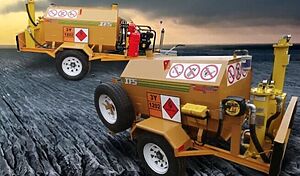Who Qualifies for Diesel Rebates?
Entities registered for VAT under the Value-Added Tax Act (No. 89 of 1991) and conducting eligible primary production activities can claim rebates by registering with SARS using form VAT101D.
Eligible activities include:
- Crop Production: Planting, growing, harvesting, irrigation, and soil preparation
- Animal Husbandry: Breeding, feeding, and maintenance of livestock
- Forestry & Horticulture: Timber harvesting, tree nurseries, and ornamental plants
- Water & Irrigation Management: Pumping, irrigation, and water transport for farming
- Infrastructure & Earthworks: Maintenance of farm buildings, fences, roads, and equipment
Key point: Diesel used for non-eligible activities, such as transporting goods for reward, cannot be claimed and must be clearly separated in records.
How Diesel Rebates Are Calculated
Rebates typically cover 80% of eligible diesel purchases, combining both the fuel levy and the Road Accident Fund (RAF) levy.
Example Scenarios:
- Scenario 1: 1,000 litres of eligible diesel → 800 litres claimable at 366 cents per litre (148 cents fuel levy + 218 cents RAF levy)
- Scenario 2: 1,000 litres purchased, 300 litres used for non-eligible purposes → 700 litres eligible → 560 litres claimable at 366 cents per litre
This ensures rebates are only granted for diesel legitimately used in primary production activities, preventing fraud and audit issues.
Essential Record-Keeping for Diesel Rebates
Accurate, detailed documentation is critical for compliance. SmartMix Technologies supports farmers in maintaining records that meet SARS standards:
- Purchase Documentation
- Retain all diesel purchase invoices for a minimum of 5 years.
- Separate invoices for eligible and non-eligible purchases.
- Fuel Logbooks
- Record monthly opening and closing diesel levels in each piece of equipment.
- Document fuel received from storage with dates, quantities, and sources.
- Track diesel consumption per equipment, including type, ID number, hours/km, and purpose.
- Activity Tracking
- Record specific activities, locations, dates, and diesel used per activity.
- Separate eligible and non-eligible uses.
- Include operator details and equipment specifications.
- Source Verification & Supporting Data
- Manufacturer specifications and operational details (distance traveled, hours operated).
- Notes on incidents or unusual consumption.
- Compliance Checks
- Ensure records are ready for SARS audits.
- Clearly separate multiple activity streams (e.g., farming vs transport).
SmartMix automates this process, generating digital, auditable logbooks with minimal manual effort.
How SmartMix Supports Diesel Rebate Management
- Real-Time Fuel Monitoring
- Track fuel usage across tractors, generators, bowsers, and vehicles.
- Receive alerts for unusual consumption, leaks, or theft.
- Fuel Theft Prevention
- Detect unauthorized fuel removal immediately.
- Reduce losses and protect your diesel inventory.
- Automated Record-Keeping & Reporting
- Generate VAT-compliant reports automatically.
- Maintain logs that clearly separate eligible vs non-eligible diesel use.
- Rebate Optimisation
- Calculate eligible diesel and projected rebate claims.
- Ensure you claim every cent allowed under the Diesel Refund Scheme.
- Operational Insights & Analytics
- Analyse diesel consumption patterns across equipment and sites.
- Identify inefficiencies and opportunities to reduce fuel costs.
Why SmartMix Matters
With SmartMix, farmers and industrial operations can:
- Protect Diesel & Prevent Theft: Ensure every litre is accounted for.
- Simplify Compliance: Meet SARS reporting requirements effortlessly.
- Optimise Costs: Reduce fuel wastage and maximise rebates.
- Gain Data-Driven Insights: Improve operational efficiency across fleets and sites.
SmartMix is not just a fuel monitoring system — it’s a complete business intelligence platform that integrates fuel management, theft prevention, and rebate optimisation, helping South African businesses save costs, protect assets, and operate confidently.
Related Posts

Fuel Probes vs CAN Bus Data: Which Fuel Measurement Method Is Truly the Most Accurate?
Fuel Probes vs CAN Bus Data: Which Fuel Measurement Method Is Truly the Most Accurate? Why South African fleets are moving toward physical measurement for

How AI Fuel Monitoring Reduces Diesel Theft in South Africa
How AI Fuel Monitoring Reduces Diesel Theft in South Africa SmartMix Technologies — 2025 Diesel theft is costing South African fleets millions every year. Drivers,

Fuel Management Solutions in South Africa: Protect Every Litre, Increase Profit
Fuel Management Solutions in South Africa: Protect Every Litre, Increase Profit Fuel prices in South Africa continue to rise, and fuel theft is at an

Fuel Probes for Yellow Equipment: The Key to Eliminating Diesel Theft and Improving Plant Efficiency
Fuel Probes for Yellow Equipment: The Key to Eliminating Diesel Theft and Improving Plant Efficiency Every Drop Protected. Every Litre Accounted For. In South Africa’s

SmartMix Fuel Probes – Every Drop Measured. Every Litre Protected.
SmartMix Fuel Probes – Every Drop Measured. Every Litre Protected. Overview SmartMix Technologies is a South African company with over 15 years of expertise in

SmartMix Diesel Bowser – Fuel Probe & Backup Power
SmartMix Diesel Bowser – Fuel Probe & Backup Power “Every Drop Measured. Every Litre Protected. Always Powered.” The Smart Choice for Reliable Fuel Control In